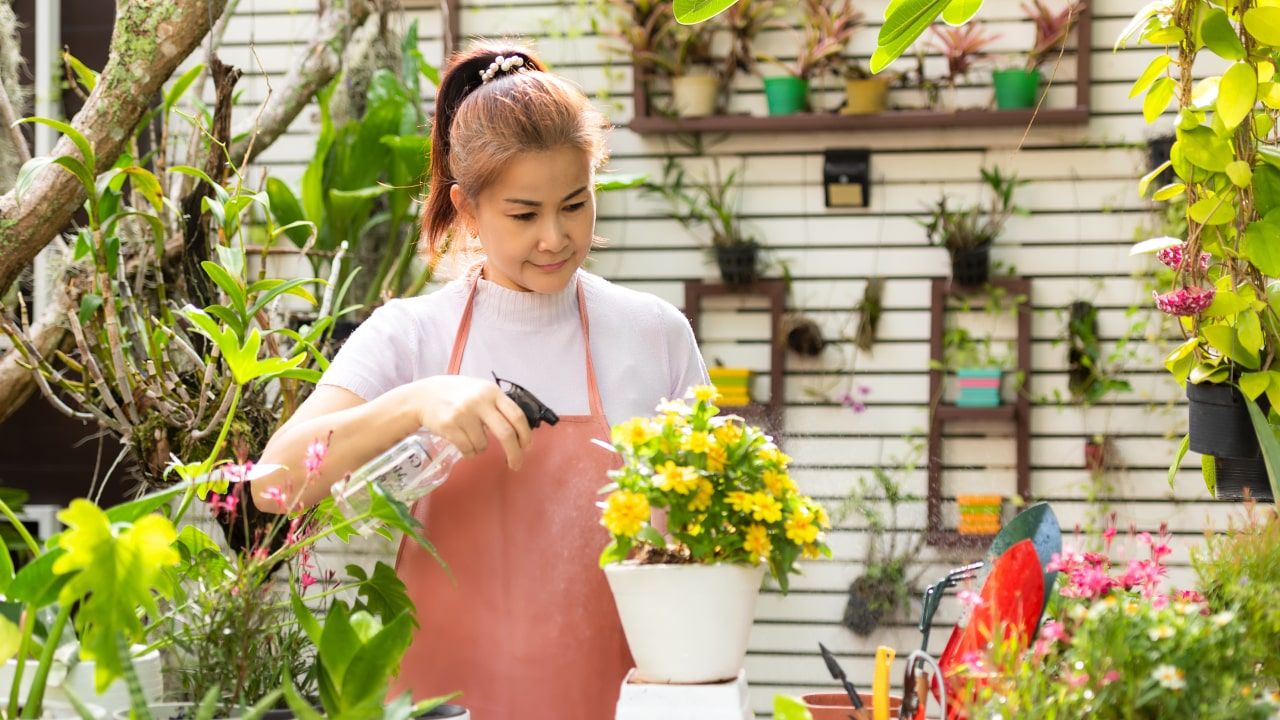Awesome Hobbies to Pick Up With Health Benefits For Adults
By Julian Lewis • April 27, 2024

Introduction: Unveiling the Joy and Health Benefits of Hobbies for Adults
In a world where the hustle of daily life can sometimes feel overwhelming, hobbies offer a crucial escape—a chance to slow down, learn something new, and enhance your well-being. From the mental clarity brought on by painting to the physical benefits of yoga, picking up new hobbies as an adult isn't just about passing time; it's about enriching life in multifaceted ways.
Imagine engaging in horseback riding on a crisp morning, or the satisfaction of sharing a meal you just learned to cook from a new cuisine. Each hobby, whether it be jewelry making, bird watching, or playing a musical instrument, opens up avenues not just for personal joy but also for social interaction and physical health. They allow us to reset our stress levels, focus our minds on what we enjoy, and maybe even turn a leisure activity into a rewarding hobby.
In exploring popular hobbies—be it through physical fitness, crafting, or digital realms like photography and online courses—adults find not just enjoyment but also avenues for personal growth and community building. As we delve deeper, let's uncover how these varied activities can significantly enhance our lifestyle, proving that it's never too late to start something new or to rediscover an old passion. Embrace the journey of finding the best hobbies to enrich your life, regardless of your interests or free time.
Join our Newsletter
Transform your career with our personal growth insights. Get one valuable tip right in your inbox every Saturday morning.
Finding a New Hobby: The First Step to a Fuller Life
The Importance of Hobbies in Adult Life
Hobbies represent more than just idle pastimes; they are vital for mental health and physical well-being. Engaging in activities such as gardening, yoga, or painting helps reduce stress by shifting focus away from daily pressures and towards tasks that yield intrinsic satisfaction. Adults who cultivate hobbies are often more mentally resilient and have a more active social life, which can lead to increased happiness and a sense of community. For instance, joining a book club or a photography class not only nurtures new skills but also opens doors to new friendships and experiences.
How to Discover Hobbies That Fit Your Lifestyle
Finding the right hobby as an adult can seem daunting, especially with the vast array of options available—from learning new languages to horseback riding. Begin by assessing your current interests and how much time you can dedicate to a new hobby. Consider integrating activities that you can do with friends or family, like cooking new cuisines or starting a game night. Online courses and local workshops are great resources to explore new fields without committing substantial resources. Experimentation is key; sometimes, a hobby can be found in unexpected places. For example, you might find joy in bird watching during morning walks or exploring digital photography. The aim is to find activities that not only entertain but also enrich your life, providing new challenges and opportunities to grow.
Categories of Hobbies: A World of Possibilities
Physical Activities: Boosting Health and Endurance
Physical activities are essential for maintaining health and enhancing physical endurance. Engaging in sports like swimming, cycling, or team sports such as soccer not only improves cardiovascular health but also strengthens muscles and joints. For those looking for less intense options, walking, yoga, or horseback riding can be equally beneficial. These activities reduce stress, improve mental health, and can be a fun way to meet new people. They provide a dynamic challenge that can be scaled according to individual fitness levels and interests, making physical hobbies a rewarding addition to anyone's lifestyle.
Creative Hobbies: Enhancing Mental Health and Creativity
Creative hobbies such as painting, drawing, and jewelry making not only offer a means of expression but also enhance cognitive functions and mental health. Engaging in crafts stimulates the mind and can help ward off diseases like Alzheimer's. Photography, for example, not only captures moments but also encourages you to see the world through a new lens, enhancing perceptual skills and mindfulness. Writing, whether it’s poetry or journaling, allows for reflection and emotional release, providing a psychological buffer against stress. Creative hobbies are not just limited to the arts; cooking and gardening involve creativity in flavors and designs, enriching daily life with aesthetic and sensory experiences.
Learning and Education: The Joy of Lifelong Learning
The pursuit of knowledge through hobbies can be profoundly fulfilling. Learning new languages opens up the world, allowing for deeper engagement with different cultures and communities. Online courses offer opportunities to dive into subjects like history, science, or digital design, often leading to new hobbies or even career paths. Book clubs and discussion groups provide a social framework to explore ideas and literature, enriching one’s understanding and perspective. Lifelong learning through hobbies like playing a musical instrument or studying astronomy can provide intellectual stimulation and satisfaction, proving that education does not end with school but is a lifelong journey that continually enriches one’s life.
In exploring these categories, one finds hobbies that not only suit their interests and lifestyle but also promote physical health, mental well-being, and intellectual engagement. Whether through physical exertion, creative expression, or academic pursuit, hobbies offer a unique blend of benefits that cater to all aspects of personal growth and enjoyment.

A Hobby a Day Keeps the Doldrums Away: The Psychological Benefits
Reducing Stress and Anxiety
Hobbies play a pivotal role in mitigating stress and anxiety, providing a break from the routine pressures of daily life. Engaging in activities such as gardening, yoga, or even more serene pursuits like painting and drawing can significantly lower cortisol levels, the body’s stress hormone. These activities allow individuals to immerse themselves in a task that is not only fulfilling but also acts as a natural form of meditation, clearing the mind and alleviating overall stress. For example, the rhythmic motions of knitting or the focused attention required in model building can create a meditative state, redirecting thoughts away from anxieties and channeling them into productive, peaceful endeavors.
Improving Mood and Self-Esteem
Participating in hobbies also has a profound impact on one’s mood and self-esteem. Achievements in activities, whether learning a new chord on the guitar or completing a fitness challenge, can boost confidence and self-perception. Regular engagement in hobbies provides structured accomplishments that are key to personal satisfaction and pride. Additionally, social hobbies like joining a dance class or a book club not only introduce supportive communities but also enhance social interaction, which is crucial for emotional happiness. These collective experiences contribute to a more positive self-image and elevate mood by instilling a sense of belonging and achievement.
Through the consistent practice of hobbies, individuals not only find an effective shield against stress and anxiety but also enhance their mental health by fostering a positive mood and higher self-esteem. These benefits confirm the old saying: a hobby a day keeps the doldrums away.
Home Improvement: Transforming Your Space and Yourself
The Therapeutic Effects of Home Projects
Home improvement projects not only transform your living space; they also offer therapeutic benefits that can significantly impact mental health. Engaging in tasks like painting walls, redesigning rooms, or landscaping the garden provides a productive outlet for creativity and stress relief. The physical activity involved in moving furniture or gardening can act as a form of exercise, releasing endorphins and reducing stress levels. Furthermore, the focus required to measure, cut, or assemble drives mindfulness, which helps in diverting thoughts from anxiety-driven patterns. The satisfaction of seeing a project come to fruition brings a profound sense of accomplishment and calm, making home improvement a highly beneficial hobby for mental well-being.
Gaining New Skills and Confidence
Home improvement not only revitalizes your space but also builds your personal skill set. Each project, from simple repairs to major renovations, challenges you to learn and apply new techniques—be it tiling, woodworking, or electrical work. This learning process is immensely rewarding and enhances self-confidence. As you gain proficiency, the increased knowledge can also lead to greater independence, reducing the need and expense of hiring professionals for future work. Each completed project reinforces a sense of capability and self-reliance, boosting your confidence in handling challenges both within and outside the home improvement sphere.
Through the dual benefits of therapeutic engagement and skill acquisition, home improvement stands out as a hobby that enriches both your personal and physical environments, proving that when you transform your space, you transform yourself.
Join our Newsletter
Transform your career with our personal growth insights. Get one valuable tip right in your inbox every Saturday morning.
Learn a New Language: More Than Just Words
Cognitive Benefits of Bilingualism
Learning a new language goes beyond simple communication—it enhances cognitive abilities in ways few other activities can. Bilingual individuals often show greater adaptability in thought processes, exhibiting enhanced problem-solving skills and creative thinking. The mental workout involved in mastering a new language increases neural activity, which can delay the onset of cognitive disorders such as dementia and Alzheimer's disease. Additionally, bilingualism improves memory and concentration by engaging the brain's executive functions, including its ability to switch attention between different tasks efficiently.
Cultural Exploration and Social Connections
Beyond the mental boost, acquiring a new language opens up vast avenues for cultural exploration and deepening social interactions. It allows for a more immersive experience when traveling, from understanding nuances in conversation to appreciating regional expressions and slang. On a social level, speaking a second language breaks barriers and builds bridges with people whose native language differs from your own. This can lead to forming significant relationships and gaining insights into how other societies operate, enriching one's personal and professional life. Furthermore, engaging in language courses or international clubs can foster a supportive community of learners who share the enthusiasm for expanding their linguistic horizons.
Learning a new language is thus not just an intellectual pursuit but a gateway to a richer, more connected life, proving that language is indeed much more than just words.

How to Find Hobbies: A Guide for Adults Seeking Passion
Identifying Your Interests and Abilities
The first step in discovering a new hobby is to reflect on what you already enjoy and what you are good at. Consider activities that have intrigued you in the past but you've never pursued, or skills that you've admired in others and wished to develop yourself. Whether it's the creative satisfaction from drawing and painting, the thrill of physical activities like dancing or sports, or the intellectual stimulation from reading or exploring new languages, understanding your own interests and strengths is crucial. This introspection can be guided by simple questions about how you prefer to spend your free time, what kinds of books or movies you enjoy, and what tasks you find most rewarding.
Exploring and Experimenting with New Activities
Once you have a sense of your interests, the next step is to explore potential hobbies. This might involve taking introductory classes, attending workshops, or joining clubs to learn more about activities like photography, cooking, or yoga. The key is to allow yourself the freedom to experiment—hobbies are personal and can be a process of trial and error. Exploring broadly can include everything from crafting, such as jewelry making or knitting, to more physical pursuits like hiking or horseback riding. Each experience will bring its own rewards and challenges, helping to refine your preferences.
Making Time and Space for Your Hobbies
Finding a hobby that you love involves not just identifying and exploring, but also making adequate space and time in your life for it. Evaluate your daily routine and consider where hobbies can fit into your schedule. This might mean setting aside specific nights for cooking new cuisines, weekends for bird watching, or early mornings for writing or drawing. Remember, the space you dedicate doesn't need to be extensive—a corner of a room or a small garden can be transformed into your hobby zone. Ensuring you have the right environment and schedule to pursue your passions will enhance your engagement and satisfaction with the hobby.
Choosing the right hobby is a journey that combines personal reflection, exploration, and practical adjustments, all aimed at enhancing your quality of life and bringing you joy.

Conclusion: Embracing Hobbies for a Healthier, Happier Life
The Continuous Journey of Finding and Enjoying Hobbies
The path to finding the perfect hobby is a continuous journey that evolves with our changing interests and stages of life. It is about the ongoing exploration and commitment to incorporate these enriching activities into our daily routines. This journey does not only lead us to new skills and passions but also reinvigorates our zest for life and enhances our overall happiness.
The Impact of Hobbies on Personal Growth and Well-being
Hobbies offer profound benefits for personal growth and well-being. They provide an outlet for stress, a sense of achievement, and an opportunity for social interaction and deeper cultural engagement. Whether it's through physical activities that improve health, creative pursuits that stimulate the mind, or educational endeavors that expand our knowledge, hobbies can significantly enhance our mental, physical, and emotional health. They remind us that personal development is limitless and that even in adulthood, we can continue to grow and expand our horizons.
In embracing hobbies, we embrace a fuller, healthier, and happier life. Let us continue to explore, learn, and evolve through our hobbies, making each day more fulfilling and enjoyable.
Read more about: Well-being, Productivity, Life Coaching
About Julian Lewis
Julian Lewis is a driven and accomplished professional with a passion for driving positive change in the business world. He is the co-founder and COO at Zella Life.
His own experience as a professional of color in a Fortune 500 company led him to discover the limitations for advancement that many professionals like himself face. Determined to reach his full potential, Julian became an established business coach and entrepreneur, committed to supporting others in their pursuit of personal and professional growth.
Today, Julian is a recognized corporate trainer, coach, and leader, known for his ability to leverage real-life experiences and evidence-based methodologies to affect positive change within individuals and organizations. As the leader of Zella Life's coaching division, he is dedicated to empowering individuals and businesses to achieve their full potential.